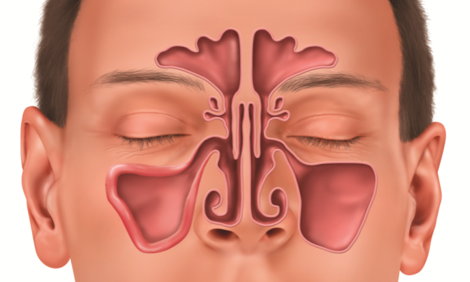United States: Chronic sinusitis situation is considered an all-too-common affliction by the experts at the University of Cincinnati Health, affecting about 14.6 percent of Americans.
How do Chronic sinuses take place?
When someone suffers from sinuses, it is marked by air-filled spaces in the skull located at the back of the face. Therefore, sufferers rely on mucus to stay moist and clean, as US News stated.
Moreover, other irritants such as bacterial infections, exposure to irritants such as smoke, pollen, chemical fumes, asthma, deviated septum, allergies, and immunological disorders have the tendency to bring irritation and inflammation to the mucosa. It can also harm the tiny hair-like cilia that cover it.
In case of excessive damage to cilia, their work of draining mucus from the sinus is no longer performed by them, which results in mucosal buildup.
However, during the worst-case scenarios, chronic irritation could stimulate the growth of nasal polyps, causing even more blockages.
In worst-case scenarios, chronic irritation can trigger the growth of nasal polyps, which cause even more blockages.
What is chronic sinusitis?
Chronic sinusitis or chronic rhinosinusitis is said to be “nasal obstruction, nasal drainage, facial pressure and/or decreased sense of smell, [lasting] for more than 12 weeks,” by the UC Health experts.
It can also cause craniofacial pain and pose obstruction to sleep and productivity, as US News stated.
Ways of diagnosing chronic sinusitis
As per the doctors at UC Health, those who complain of issues related to sinusitis would be asked about specific symptoms and their personal health histories.
UC Health stated, “The next step is a comprehensive examination of your nose and face,” and “You may have imaging studies, such as a CT scan of the sinuses.”
Additionally, a nasal endoscopy is needed to be performed, in which a tiny camera is installed to examine the nasal cavity and sinuses.
Moreover, if a sinus infection is discovered, then the person is advised to have an endoscopy, in which samples of nasal drainage are taken for testing, as US News stated.
Nasal allergy relation with chronic sinusitis
According to a UC Health expert, Dr. Ahmad Sedaghat examined 219 patients suffering from sinus issues and had been diagnosed with nasal allergies.
Furthermore, it was found that most of them had some kind of allergy, but almost half (45.2 percent) of them also gave a positive result for chronic sinusitis.
The author also noted that many of the participants would have benefitted from testing if the spotting of sinusitis.
Sedaghat, who is also a professor at the UC College of Medicine, said, “We have seen so many patients suffer for so long due to the confusion between allergies and chronic rhinosinusitis [CRS],” and, “I’ve had patients who tell me that they have been treated with allergy shots for 10, 20 or more years without relief of their symptoms but who after we discovered they had CRS and we started them on appropriate treatment, achieved relief within a few months,” as US News stated.
Treatment and surgery of chronic sinusitis
Generally, there’s a “medications first, surgery second” approach to treat sinusitis.
The medications recommended by experts are- Inhaled corticosteroids, in which nasal spray is often given, along with nasal drops or nasal irrigations. They are prescribed by experts for long-term usage.
In case of severe inflammation, steroids are seldom given by mouth.
Other ways include saline rinsing of the nose and providing allergy meds if it is believed an allergy has a role in the sinusitis.
The US Food and Drug Administration (FDA) also approved some biologic drugs that target inflammatory chemicals linked with the development of polyps.
According to experts, if medication fails, endoscopic sinus surgery is the next step for the cure.












Leave a Reply